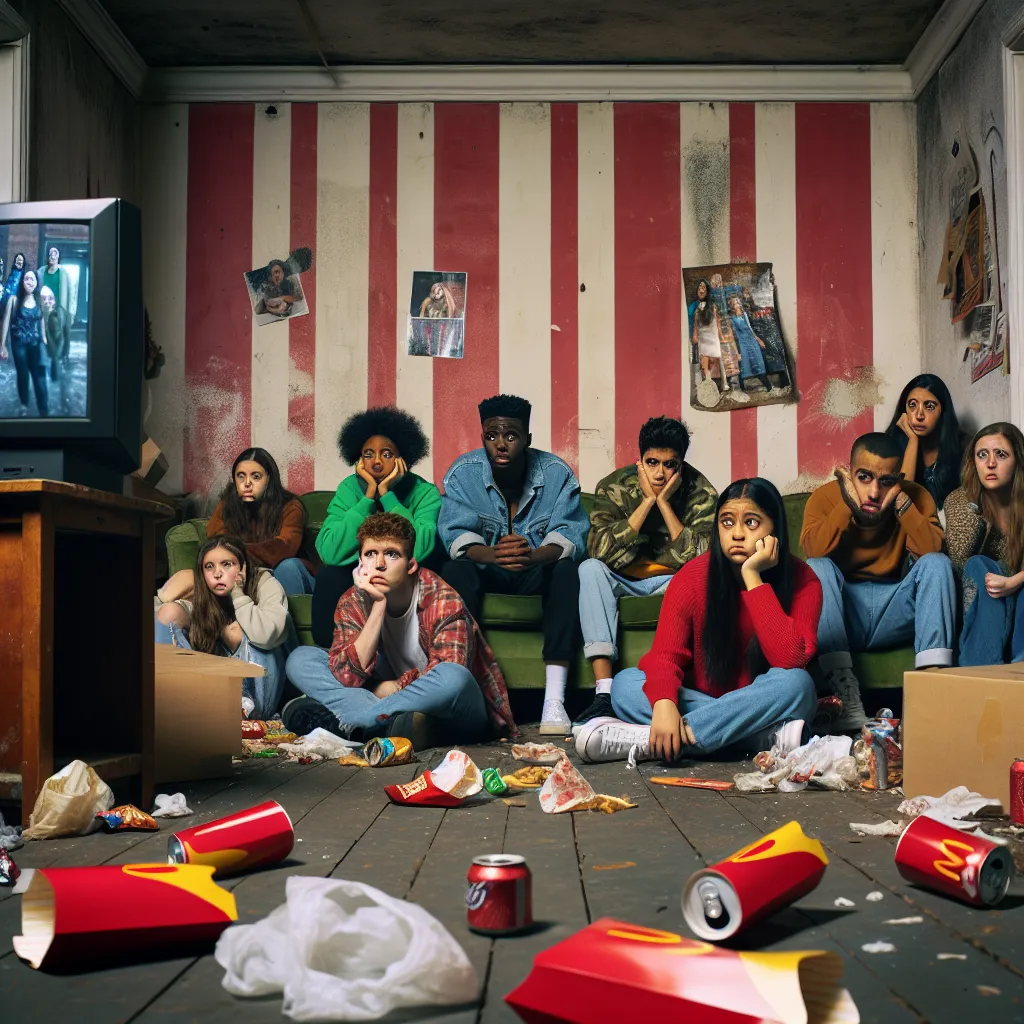The Dark Side of Reality TV: Negative Effects on Mental Health
Reality TV shows have become a ubiquitous form of entertainment, captivating millions of viewers worldwide. While these shows offer a unique glimpse into the lives of everyday people, there is a dark side to their impact on society, particularly in terms of their negative effects on mental health.
One of the most concerning aspects of reality TV is its potential to perpetuate unrealistic beauty standards and promote a culture of comparison. Viewers are often exposed to carefully curated and edited versions of reality, which can lead to feelings of inadequacy and low self-esteem. Research has shown that frequent exposure to these unrealistic standards can contribute to body image issues, eating disorders, and overall dissatisfaction with one’s appearance.
Moreover, the competitive and often confrontational nature of many reality TV shows can fuel feelings of anxiety, stress, and even aggression among both participants and viewers. The relentless pressure to perform and the constant scrutiny from both the public and the media can take a significant toll on the mental well-being of those involved. Additionally, the sensationalization of conflicts and drama can desensitize audiences to real-life issues and perpetuate a culture of negativity and toxicity.
Furthermore, the lack of privacy and the invasive nature of reality TV can have profound implications for the mental health of participants. The constant surveillance, public scrutiny, and the blurring of boundaries between the private and public spheres can lead to heightened levels of stress, anxiety, and emotional distress. Many reality TV stars have spoken out about the detrimental impact of their newfound fame on their mental well-being, highlighting the need for greater support and protection for those thrust into the spotlight.
In conclusion, while reality TV remains a popular form of entertainment, it is essential to acknowledge its negative effects on mental health. By promoting unrealistic standards, fostering a culture of comparison, and contributing to elevated levels of stress and anxiety, reality TV can have far-reaching implications for the well-being of both participants and viewers. It is imperative for society to engage in critical discussions about the ethical implications of reality TV and to prioritize the mental health and well-being of all individuals involved.
Reality TV and Its Influence on Social Norms and Behavior
Reality TV has become a pervasive part of modern society, influencing social norms and behavior in various ways. The genre has played a significant role in shaping popular culture and has a profound impact on the way people perceive themselves and others. One of the key ways reality TV influences social norms and behavior is through the portrayal of certain attitudes and behaviors as acceptable or desirable.
Many reality TV shows often prioritize drama, conflict, and sensationalism over more positive and constructive interactions. This can lead viewers to believe that such behavior is normal or even desirable in their own lives. Furthermore, the emphasis on materialism, physical appearance, and conspicuous consumption in many reality TV programs can contribute to the perpetuation of superficial values and unrealistic standards, impacting how individuals perceive success and happiness.
Moreover, the often competitive and cutthroat nature of reality TV can normalize and glamorize aggressive and ruthless behavior as a means to achieve one’s goals. This can have a detrimental effect on social interactions and relationships, as viewers may internalize these attitudes and behaviors, leading to conflicts and misunderstandings in their personal lives.
It is essential to recognize the potential influence of reality TV on social norms and behavior and to critically evaluate the messages being portrayed. By being mindful consumers of media and promoting more positive and authentic representations of human experiences, we can work towards mitigating the negative impact of reality TV on society.
The Role of Reality TV in Shaping Perceptions of Beauty and Success
Sure, here’s a paragraph that focuses on the role of reality TV in shaping perceptions of beauty and success:
Reality TV has played a significant role in shaping societal perceptions of beauty and success. The constant portrayal of a narrow and often unattainable standard of beauty on reality shows has contributed to the perpetuation of unrealistic beauty ideals. This, in turn, has led to detrimental effects on individuals’ self-esteem and body image. Moreover, reality TV often emphasizes material wealth and instant fame as markers of success, promoting a skewed understanding of achievement. As a result, viewers may internalize these standards, impacting their own aspirations and self-worth. The pervasive influence of reality TV in perpetuating these ideals underscores the need for a more diverse and realistic representation of beauty and success in media.



